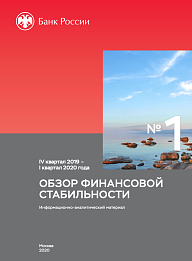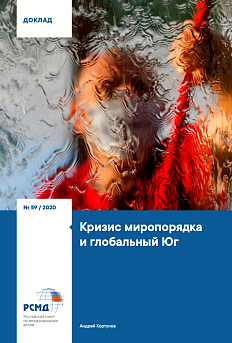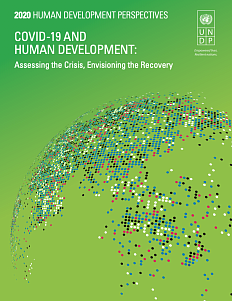The publication by the Bank of Russia studies main risks of the global economy and global financial markets and channels of the impact of the coronavirus pandemic on the Russian economy and the financial sector, in particular on the Russian financial market, the banking sector, and non-bank financial institutions. The appendix to the publication contains an overview of foreign financial regulators’ measures for supporting the financial market and the economy.
The Roscongress Foundation presents the salient points of the publication accompanied by fragments of broadcasts of relevant panel discussions from the business programme of international events held by the Roscongress Foundation.
Although the global financial system is fairly stable today, the global spread of COVID-19 resulted in a downward revision of the outlook for the financial sector. If several waves of the pandemic follow, the outlook will undergo another revision, and the financial sector will require additional assistance.
The International Monetary Fund (IMF) estimates that the global GDP will drop by 3% in 2020, the most significant fall since the Great Depression. According to the baseline April forecast of the Bank of Russia, economic output in Russia will decrease by 4–6% in 2020.
Starting from the end of March, the urgent introduction of extensive monetary and fiscal incentives as support measures by the governments and central banks of the world’s largest economies helped stabilise the situation on the global financial markets. However, uncertainty about when the pandemic will end poses the threat of a deeper economic downturn than currently expected.
The financial regulatory reforms following the crisis of 2007–2009 resulted in a much more stable global financial system, which, assisted by regulatory easing measures, will be able to cope with the upcoming credit losses.
However, if several waves of the pandemic follow, and economic recovery is delayed, global banks may not have sufficient capital for lending to the economy, and the governments of the leading countries will have to provide assistance to the financial sector. This may cause a negative correlation between sovereign and banking risks, just as during the European crisis of 2010–2012.
Thus, governments and regulators are now called upon to develop medium-term action plans that include short-term support for the economy and regulatory easing measures as well as a medium-term vision for fiscal consolidation and phasing out of regulatory easing.
The impact of the COVID-19 pandemic on the Russian economy is extensive and is manifesting both through the deterioration of external economic conditions, primarily the fall in demand and prices for oil, and as a result of restrictive measures and reduced economic activity in Russia. However, Russia’s financial sector remains stable overall.
The decline in risk appetite of global investors led to a reduction in their investments in Russian assets and capital outflow in late February—March 2020, accompanied by curtailing of their operations under the carry-trade strategy and purchases of foreign currency on the domestic market. The exodus of foreign investors from Russian assets resulted in growing bond yields, declining industry indices and weakening of the ruble. Due to high market volatility, the Ministry of Finance of Russia suspended OFZ auctions.
Since late March—early April, the measures taken by world regulators and the Bank of Russia to support the economy have helped stabilize the situation. Foreign investors are gradually returning to the Russian markets, OFZ yields have returned to levels seen before the period of increased volatility and non-residents have resumed foreign exchange sales and participation in auctions for the initial placement of OFZs.
As a result of the COVID-19 pandemic and the drop in oil prices, the Russian economy has faced an unprecedented shock, but the financial sector remains stable overall. The Bank of Russia is able to pursue countercyclical monetary and macroprudential policies to ensure financial stability and support aggregate demand. Consistent implementation of inflation targeting in recent years has reduced the dependence of inflation on exchange rate dynamics, and the application of the fiscal rule has reduced the dependence of the exchange rate on the dynamics of oil prices. A loose monetary policy supports lending and ensures the stable dynamics of interest expenses in the banking sector. Regulatory easing and reduction of macroprudential add-ons will allow banks to gradually absorb losses and ensure the continuity of their operations.
For more information about possible ways to stabilize the economy during the pandemic, please see the StayHomeEconomy special section of the Roscongress information and analytical system, and the Monetary policy and Financial market sections about financial and macroeconomic indicators.






